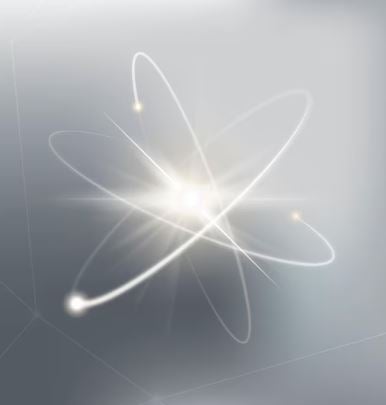PhD in Physics
With more than 80 PhD students who come from all around the world, and 30 faculty members engaged in fundamental and applied research, the USC Department of Physics and Astronomy offers an exciting research environment in a vibrant cosmopolitan city. The areas of research span both pure and applied areas with research opportunities within the Department of Physics and Astronomy as well as the groups of our joint faculty.
Those areas include experimental science, computation, and pure theory. Our research laboratories include lasers, optical measurement systems, low temperature facilities, cluster and atomic beam equipment, materials growth and characterization, biomaterials handling, and one of the fastest supercomputers in the world. In addition to the individual laboratories of faculty, graduate students gain access to the world-class research facilities of USC, which include: The Center for Electron Microscopy and MicroAnalysis (CEMMA); Molecular Imaging Center; Keck Photonics Center; Chemistry Instrumentation Facility; NanoBioPhysics Core Facility; Cell and Tissue Imaging Facility; Proteomics Core Facility; the D-Wave experimental quantum computer, and the High Performance Computing Center.
Here are some of the research groups currently taking PhD students:
Astrophysics and Cosmology
Biological Physics
AMO/Condensed Matter Physics
High Energy Physics
Quantum Information Science
PhD in Physical Biology
The Physical Biology (PBIO) PhD program is designed for graduate students who seek a quantitative framework for understanding the physical principles of biological organization and function. These students may have backgrounds from physics, engineering, mathematics and chemistry, but seek to wield their quantitative skills in the basic or applied life sciences. The program is also for students with training in the biological sciences looking for training and research opportunities grounded the physical sciences. and who seek a fundamental understanding of biological systems not emphasized in PhD programs associated with departments of biology, medicine, bioinformatics, or engineering. Graduates will likely move onto careers including medicine, pharmaceuticals and biotechnology, as well as career opportunities open to graduates with training in the physical sciences. Graduates may also pursue academic positions in the growing area of biophysics.
In order to apply to the Physical Biology Program, please go to our Department Graduate Admissions page.
USC-Carnegie Observatories Graduate Fellowships in Astronomy
The USC Department of Physics & Astronomy is partnering with the Carnegie Observatories in offering graduate fellowships in astronomy. Successful candidates will be admitted to the PhD program at USC and perform research at Carnegie Observatories in Pasadena. They will receive a research assistantship (at the current annual rate) in addition to full tuition remission and health benefits throughout their graduate career, subject to satisfactory academic progress.
In order to apply, please go to the Office of Graduate Admission Apply page.
Master of Science Program in Medical Biophysics
The Master’s Program in Medical Biophysics (MBPH) is designed for students who have backgrounds in physics, chemistry, biology, mathematics, and engineering, and who are motivated to pursue training in biomedical research that emphasizes theoretical, computational, and experimental biophysical methods. The training faculty in the MBPH program includes faculty members from multiple departments at USC who have research programs in areas including structural biology, neuroscience, membrane biophysics, cellular biophysics, and theoretical biophysics. Students are usually admitted to the MBPH program on the research-based thesis track; however, in special circumstances applications to the non-thesis track will be considered.
Please visit the Medical Biophysics MS Program website for more details.

Master of Science in Quantum Information Science
In recent years, experimental progress in the field of Quantum Information Science has led to the construction of the first small quantum information processors and quantum communication systems. Both established companies (like IBM, Google, Intel and Microsoft) and startups (like ID Quantique, D-Wave, Rigetti and IonQ) have begun investing large amounts into the development and commercialization of quantum technologies. Based on this investment and growth in the field, there are increasing opportunities for engineers with a background in quantum information science to work on the design, construction and programming of quantum systems. The curriculum of the Master of Science in Quantum Information Systems at USC is designed to produce well-rounded graduates who are prepared to tackle the diverse challenges of creating new quantum technologies. Our faculty includes top experts in Quantum Information Science from the Electrical Engineering, Physics, and Chemistry Departments. Graduates may pursue careers at major technology companies that are exploring advances in or applications of Quantum Information Science. Alternatively, they may wish to look for opportunities at early-stage or start-up companies focused on Quantum Computing Technology. Additional opportunities may be available in the fields of Defense, Telecom, Sensing, and Cryptography.
Contact
Staff Graduate Contact
Email physics@dornsife.usc.edu